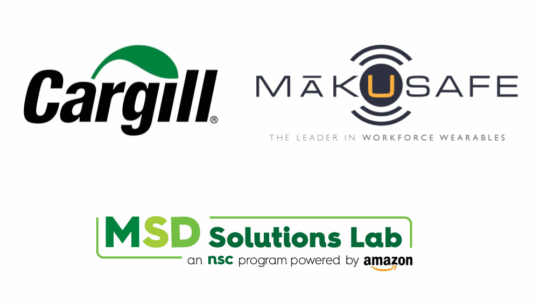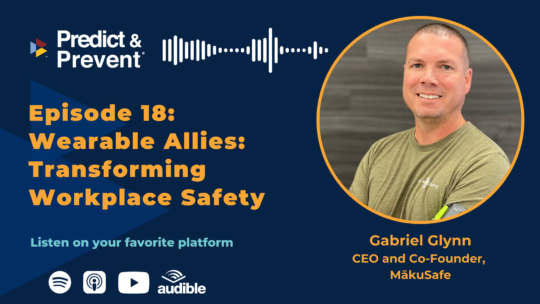Corridor Business Journal profiles MakuSafe capabilities aimed at COVID-19
June 19, 2020
Checking in: COVID-19 sparks demand for employee health apps

An automotive plant worker wears the armband device that connects her with her MakuSmart employee safety platform from MakuSafe, based in West Des Moines, which has been adapted for employee contact tracking use in the COVID-19 pandemic. PHOTO MAKUSAFE
By Dave DeWitte
dave@corridorbusiness.com
… excerpted from CBJ article…
MãkuSafe, based in West Des Moines, is marketing its MãkuSmart platform for tracking employee work conditions as a solution for employers looking to trace contacts between employees that could lead to COVID-19 transmission, and to track the density of employees in the workplace for proper social distancing.
The platform was originally developed to provide ESH (environment, safety and health) managers with actionable information to protect the safety of workers. Employees use a personal identifier to log in on a kiosk that resembles a time clock, where they are issued an armband-mounted electronic device they wear during their shift.
The MãkuSmart device collects information on their movements and location, and a continuous stream of environmental data such as temperature and humidity that is displayed on a smartphone or computer. The sensor is also equipped with a microphone that the wearer can use to quickly record and send messages about immediate safety issues that should be addressed.
As the COVID-19 pandemic spread, “it was almost a test to see, have you created a platform flexible enough to meet new developments in the workplace?” said MãkuSafe CEO Gabe Glynn, a Cedar Rapids native. It turned out that relatively few adaptations were needed for COVID-19 applications – primarily dashboard tools that allow the user to view worker density and easily trace worker contacts.
“If one of your workers named Tom gets sick, we can go look at Tom’s MãkuSmart profile and see who he’s spent time over the last three days, five days or whatever number of days you specify,” Mr. Glynn said. “Who has Tom spent the most time with? Who could have possibly been exposed to the disease?”
MãkuSmart was expecting the greatest demand for its system to come from the manufacturing and logistics industries, but it has instead seen a surprising rise in interest from the construction and mining sectors. The company has several commitments for installation of its platform in 2020, and conversations with other prospective customers have been accelerated by the dangers of the pandemic. One prospect who was only interested in a small-scale trial suddenly was asking how quickly the company could supply 6,000 of the wearable devices with their supporting kiosks.
Earning employee trust
MãkuSmart users don’t have concerns about medical privacy because the system does not record or monitor any personal health data. Rather, Mr. Glynn said, it employs machine learning technology to read through and assess environmental data, and identify “high-impact trends” that raise safety concerns for leadership.
To read the full article check out Corridor Business.





